Phnom Sruoch district, Kompong Speu province –
Villagers fear that the spirits residing at the Preah Damboukbon pagoda are enraged.
Their anger has many roots. The temple has been neglected. Wayward monks have become increasingly unruly and undisciplined. Rumors of drug use and prostitution at the pagoda have multiplied. The faithful have fled.
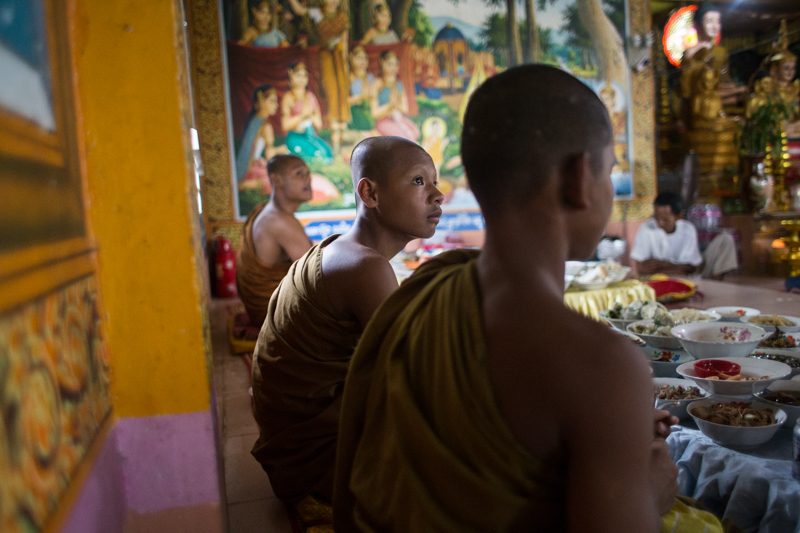
“We are still alive and we became angry,” villager Sreng Mom said this week. “How about the spirits of our ancestors? They are also angry.”
The pagoda’s problems have been festering for at least three years, but they came to a head earlier this month after police received a tip that a prostitute had been seen entering the chief monk’s dorm. A police stakeout and subsequent search led to the discovery of drug pipes and empty plastic baggies believed to have contained crystal methamphetamine.
The chief monk, 37-year-old Orm Pheakdey, was arrested and defrocked, along with the four monks he mentored—together all the monks in the pagoda. Under questioning, the four underlings said Mr. Pheakdey was their dealer, charging up to $5 per high. After testing positive for meth, the five were charged with conspiracy to use drugs and sent to prison to await trial.
The revelations were heartbreaking for the villagers, whose relationship with their local pagoda mirrors the complex—and sometimes deteriorating—ties Cambodians throughout the country maintain with the monkhood. In Buddhism, it is monks and the pagoda that give the living access to their ancestors.
“I believed in the chief monk. We loved him,” said Ms. Mom, a 56-year-old farmer. “But after this, I lost trust.”
The Preah Damboukbon pagoda, part of the Thammayut Buddhist sect, a monastic order that traces its history back to Thailand in the 1800s, opened in 2009 with a worship hall, a stupa and dorms for the monks. Mr. Pheakdey was recruited from Phnom Penh to be the founding chief monk because local monks had little knowledge of the sect’s practices, said Khut Thy, one of the pagoda’s seven priests and committee members. The other four monks also came from Phnom Penh in the years to follow.
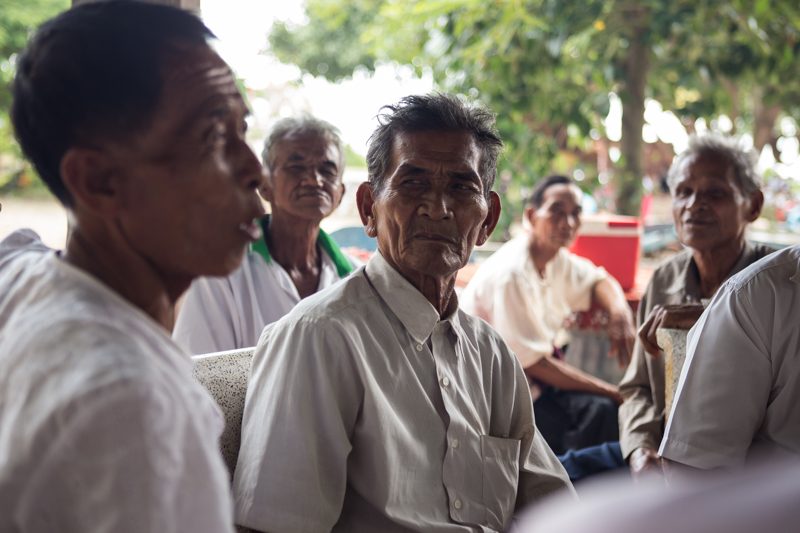
Back then, Mr. Pheakdey was welcoming to the local Buddhist community and driven to make the pagoda flourish, Mr. Thy said. His face was full of color and his belly was round.
In 2013, that changed. To Mr. Thy, a 65-year-old village priest, and others, the reasons were initially inexplicable.
“The last time I visited, I heard the chief monk speaking to a priest with bad words and a rude voice,” Mr. Thy said of a meeting at the pagoda last year. “His face had become so pale.”
Soon after, all of the committee members decided they had had enough of the monks’ behavior and abandoned the pagoda. At that point, rumors that the monks were using drugs, and that the chief monk had a mistress, had already been circulating in the community for two years.
Donations by villagers were not being used effectively, Mr. Thy said. Construction of a temple, which began last year with $10,000 in donations—largely from villagers who had almost no money to spare—came to a standstill. The foundation was poured, but only steel rebar stretches to the sky where walls were supposed to be built.
The lack of progress on the temple was distressing to villagers.
“I don’t know where my money has gone,” Ms. Mom said. “We don’t know if it went to drugs, or to mistresses.”
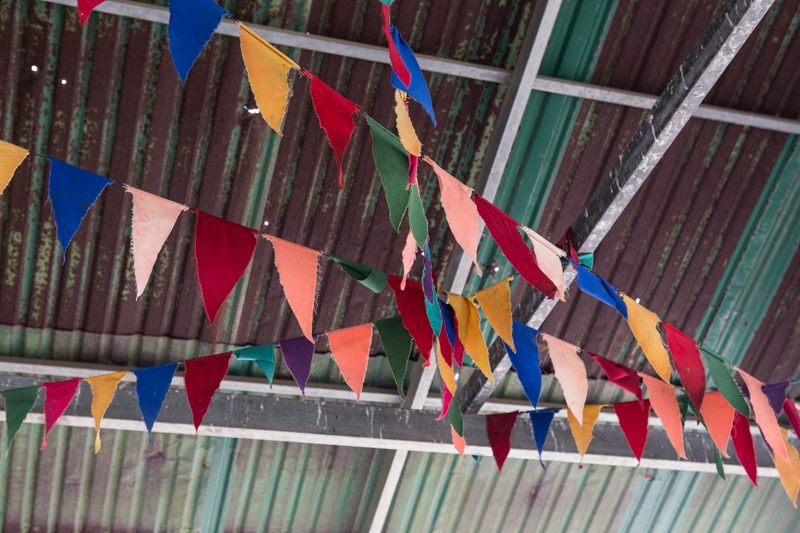
[dropcap]C[/dropcap]ritics say the monks at Preah Damboukbon were not the only ones neglecting their responsibilities in recent years.
The Buddhist clergy and police officials repeatedly failed to address the concerns of the pagoda’s priests and villagers, even after the committee that advises the pagoda had disbanded in protest. Villagers were eventually forced to find a new place of worship.
After the monks were charged, Phuong Sophoeun, a monk who heads the district’s cults and religion office, admitted that he knew there were problems at the pagoda and that a change in leadership was necessary.
“I requested a change a long time ago,” Phuong Sophoeun said. If the requests had been taken seriously, he said, the pagoda’s image would have been spared the public humiliation—and the spirits could have rested more easily.
Authorities knew bad things were happening at the pagoda, “but they did not take any action,” said villager Chan Thy, 32, her voice filled with exasperation. “People had talked about this for a long time, and even nuns and members of the pagoda committee had left.”
Her husband, So Phearun, an auto mechanic, said he had heard the sordid tales in March or April at his garage. His brother, he said, had even seen a meth pipe out in the open when he went to visit a monk.
“Some people who used drugs with the monks came to me to get their motorbikes fixed, and they spoke about the chief monk using drugs,” Mr. Phearun said.
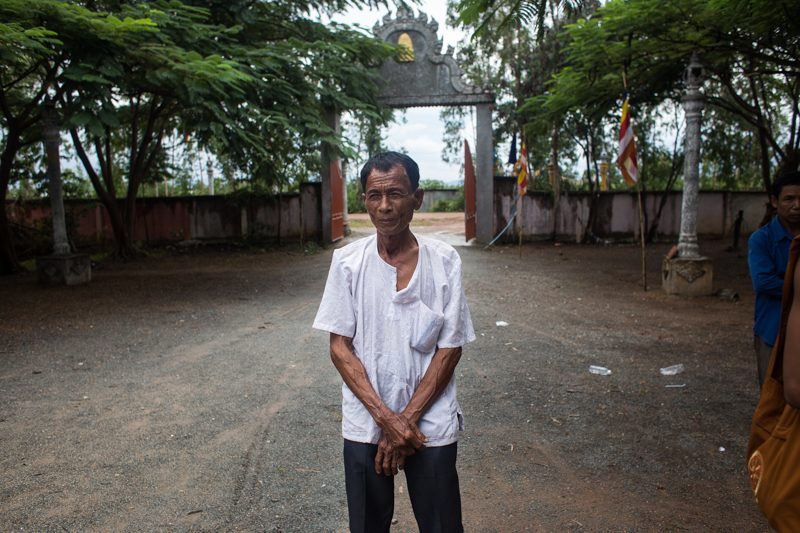
Both religious officials and police could—and should—have done much more to resolve the problem at the pagoda, which is adjacent to the school their children attend, the couple said.
“I wanted authorities to take immediate action in order to warn others not to follow this example,” Ms. Thy said. “I was scared to send my children to the school.”
[dropcap]A[/dropcap]uthorities offered many excuses this week for taking so long to respond, blaming everything from disbelief in the allegations to an unwillingness to accuse monks of such behavior.
Muong Chakrey, the province’s chief monk for the Thammayut sect, said he “had only been in his position for a few months” and did not know why action was not taken sooner.
By the time the pagoda was raided, though, he said he was not surprised by the arrest of the five monks, as he had received numerous complaints about the chief monk and had “reprimanded him three or four times already.”
Sam Sorpheann, director of the provincial cults and religion department, however, said he had only received information about the pagoda three or four months ago, and had sent officials to investigate right away. He said the officials noted that the pagoda had largely emptied and that the monks there were acting strange, and that he told provincial police to follow up.
Police had received “many reports” of prostitution and drug use at the pagoda starting in 2014, but efforts to crack down were minimal until a few months ago, said Ouk Samnang, a Dambouk Roung commune police officer.
“We tend not to believe it when we hear bad reports about a monk,” he said. “We don’t believe it or pay much attention, because we don’t think a monk can use drugs and have a mistress.”
In retrospect, the complaints should have been taken more seriously, Mr. Samnang said. But, he added, police cannot act without evidence and need the approval from religion officials, making official inquiries more challenging than with normal citizens.
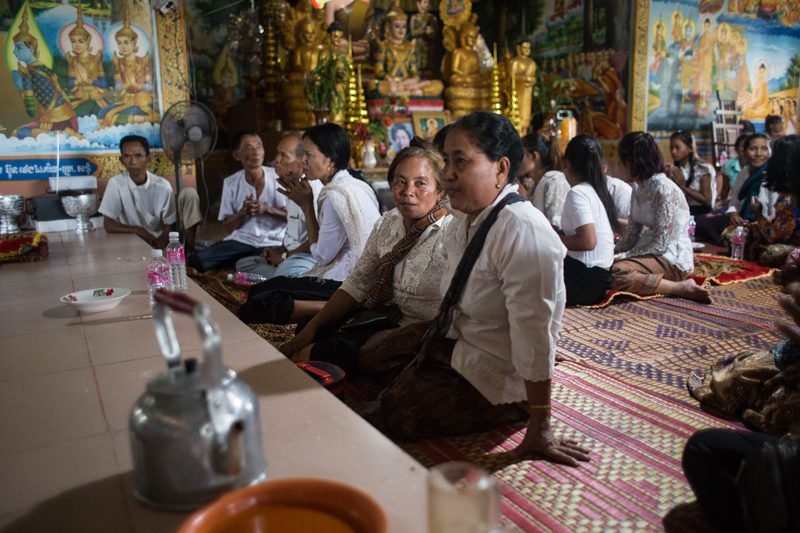
In recent years, cases of corruption and criminal behavior among Cambodia’s monks have been widespread. Some have blamed the use of pagodas—meant to be bastions of Buddhist scholarship—as dumping grounds for delinquents. Others have pointed to a clergy that continues to say misbehaving monks are isolated incidents and not symbolic of wider problems.
In the past year alone, two monks were charged with raping girls under 10, one in Phnom Penh and another in Kompong Speu province. A chief monk admitted to raping 10 teenage boys in his care in Siem Reap province. A man in Battambang province—deemed “the masturbating monk”—was defrocked for posting explicit videos of himself on the internet.
In January last year, an 18-year-old monk was charged over the fatal stabbing of the deputy chief of his pagoda in Phnom Penh, and a chief monk in Preah Vihear province was charged with the premeditated murder of a 64-year-old woman who attended his pagoda.
Cases of drug use by monks have become increasingly frequent.
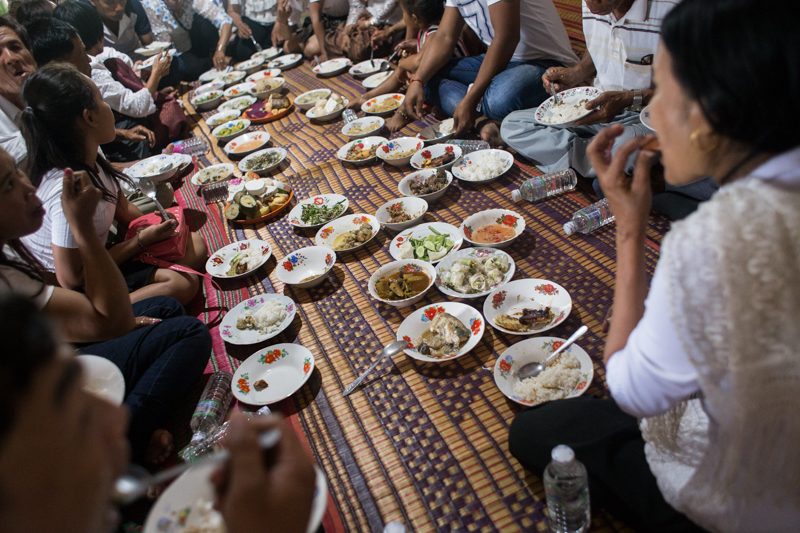
The rise in illegal or immoral activities among monks reflects the same shift in society in general, according to Ang Choulean, an ethnologist at the Royal University of Fine Arts who specializes in Cambodian traditions.
However, a lack of moral leadership within the clergy was not helping the situation, he added.
“Maybe we lack a bit of strong authority,” he said. “Because if I compare [now] with many years ago, the hierarchy was strong—morally strong.”
“Inside the Khmer society as a whole, monks belong first to the monk clergy,” he said. “Solving the problems should start like that.”
Seng Somony, a spokesman for the Ministry of Cults and Religion, was adamant that the clergy remained steadfast.
“Monks still have high morality and virtue and this has not decreased,” he said.
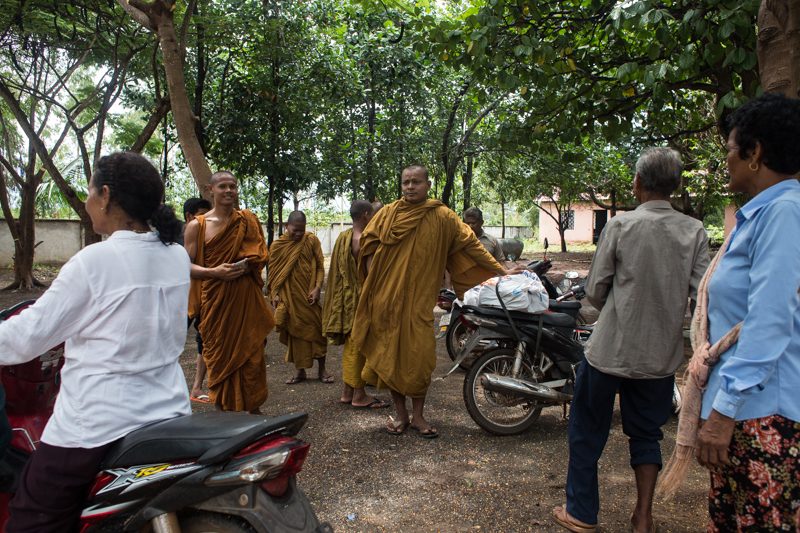
Recent cases of unlawfulness among monks were individual cases and not endemic of broader behavior, Mr. Somony reiterated, citing a Khmer proverb: “Rice in a field—even though they are all growing smoothly—must have one or two that break.”
[dropcap]A[/dropcap]fter the group’s arrest, the Preah Damboukbon pagoda compound was left vacant for nine days, according to the interim chief monk of the pagoda, 24-year-old Sem Kosal.
He and two monks from the nearby Preah Samma Sambuddho pagoda arrived just in time to preside over Pchum Ben ceremonies—the 15-day religious festival in which Buddhist observers bring food and other offerings to their ancestors.
At Preah Damboukbon pagoda, villagers believe this is the first time in years that the spirits will be properly fed.
“I think my gifts to the ancestors will reach my ancestors now, because of the new chief monk,” said Ms. Mom, the villager. “But if we had given it to the bad monks, it would never have reached them.”
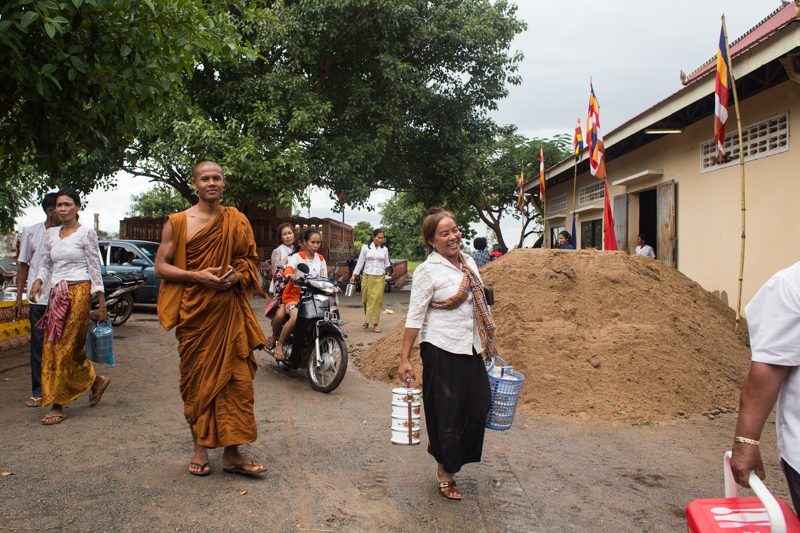
Sem Kosal said he would be permanently appointed in the near future and more monks were expected to join him. He has many plans to reinvigorate the compound, from planting gardens to building new bathrooms and dorms, he said. As for resuming the temple construction, however, “we’ll just stop for a while.”
But even as Sem Kosal looks to the future, he said he worries that remnants of the pagoda’s past might linger. He worries about rebuilding the pagoda’s image; about his safety should the “bad people” seek to retaliate.
He remains mostly optimistic, however, due to the resilient faith of the villagers.
“I believe the image of the pagoda will be restored, because more and more people are coming and showing their support.”




